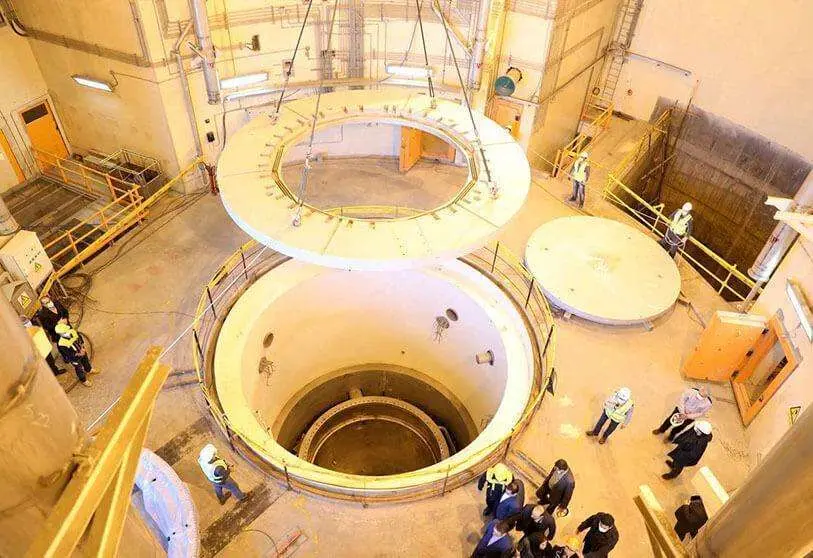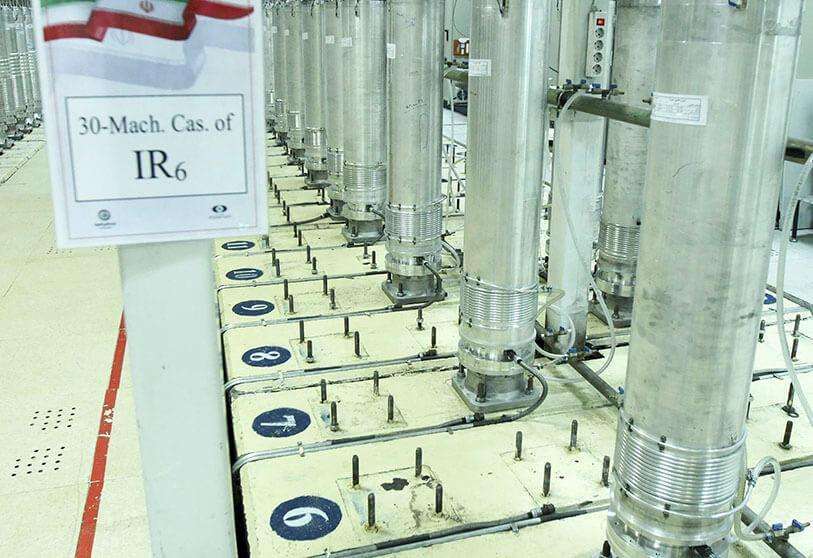Iran enriches uranium to 84%, close to the amount needed to acquire a nuclear weapon

Iran's nuclear capabilities are once again causing mistrust and concern at the International Atomic Energy Agency (IAEA). The UN agency has announced that it is in the midst of talks with Iran to verify recent reports of uranium enrichment being carried out by the Tehran regime.
As diplomats told Bloomberg and Reuters, nuclear inspectors have detected enrichment levels just below the 90% level needed to produce an atomic bomb. In particular, the sources indicated that Iran has enriched uranium to 84%.
The IAEA is now trying to find out whether Iran has produced this amount intentionally or whether it was the result of an unintentional build-up "due to alleged technical difficulties with centrifuge cascades," Bloomberg reports.
The IAEA is aware of recent media reports relating to uranium enrichment levels in Iran. Director General @rafaelmgrossi states that the IAEA is discussing with Iran the results of recent Agency verification activities and will inform the IAEA Board of Governors as appropriate. pic.twitter.com/4Aqdq01Xr5
— IAEA - International Atomic Energy Agency ⚛️ (@iaeaorg) February 19, 2023
Iran, for its part, has been quick to deny the reports. "So far, we have not made any attempt at enrichment above 60%. The presence of particles above 60% does not mean production with enrichment above 60%," said Behrouz Kamalvandi, spokesman for the Atomic Energy Organisation of Iran, according to state news agency IRNA.
Since April 2021, several reports have warned that the Islamic Republic has been enriching uranium to 60% purity. A few months ago, the Iranian regime began enriching to that level at the Fordow underground plant northeast of Qom.
The recent statements by several diplomats and observers come shortly after the IAEA accused Iran of making a change in the interconnection between two sets of uranium centrifuges at the Fordow plant without notification. This action was perceived as an attempt by Iran to increase the level of enrichment.

After former President Donald Trump pulled the United States out of the Iran nuclear deal in 2018 and imposed sanctions against Tehran and the Iranian nuclear industry, the Islamic Republic stopped respecting IAEA nuclear restrictions, dangerously raising its uranium enrichment.
On the other hand, nuclear negotiations between Iran and several international powers to reinstate the 2015 agreement have been stalled for several months. Tehran's arms support to Moscow during its invasion of Ukraine, as well as Iranian anti-government protests, have widened the gap between Iran and the West.
Recently, countries such as the US and Canada have imposed new sanctions against Iran's military-political elite for the brutal crackdown on protesters. Nearly 500 people have been killed during the protests that began last September following the murder of young Kurdish woman Mahsa Amini. In addition to those killed in the demonstrations, the regime has already executed four men for their involvement in the protests, although many more people have been sentenced to death.








